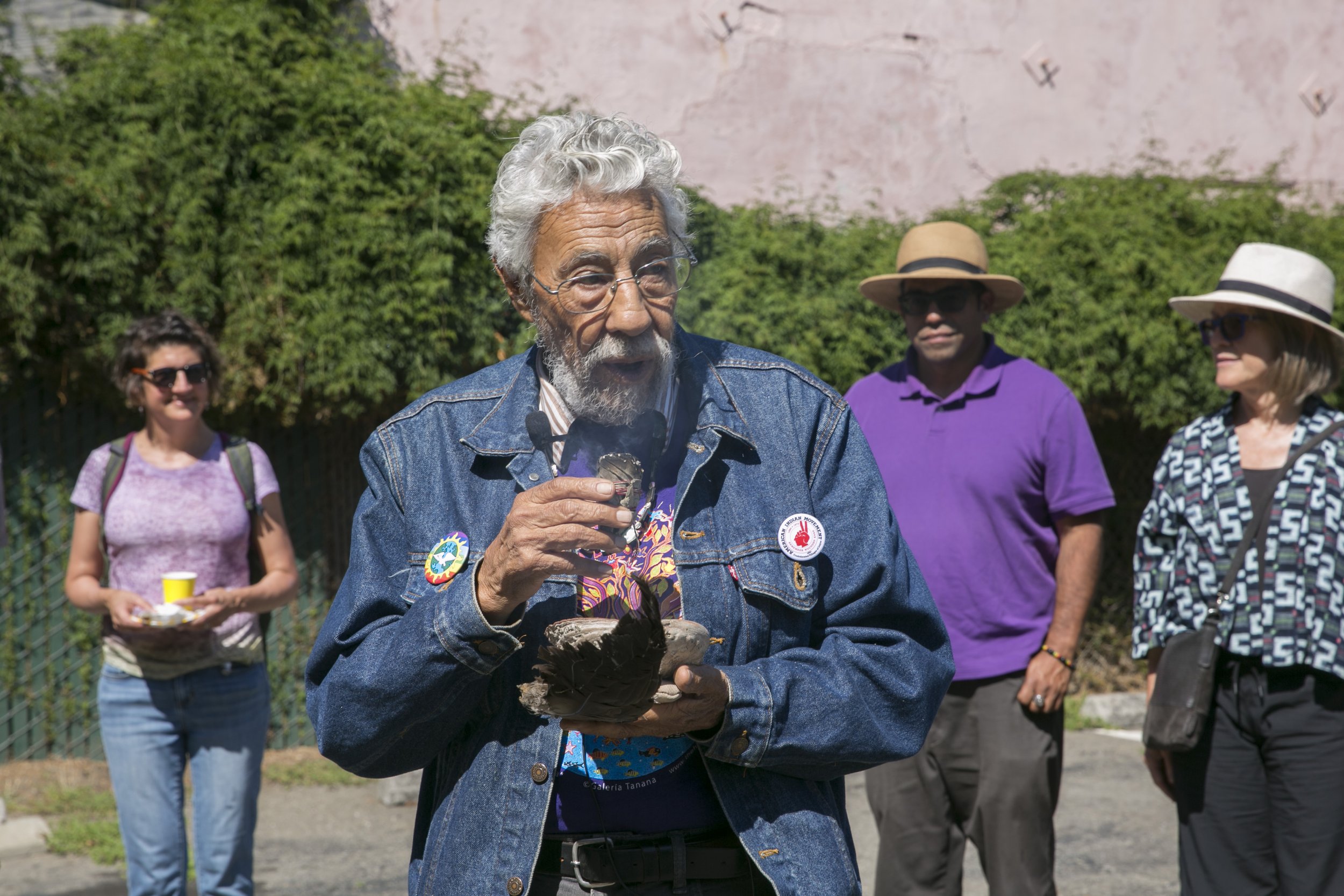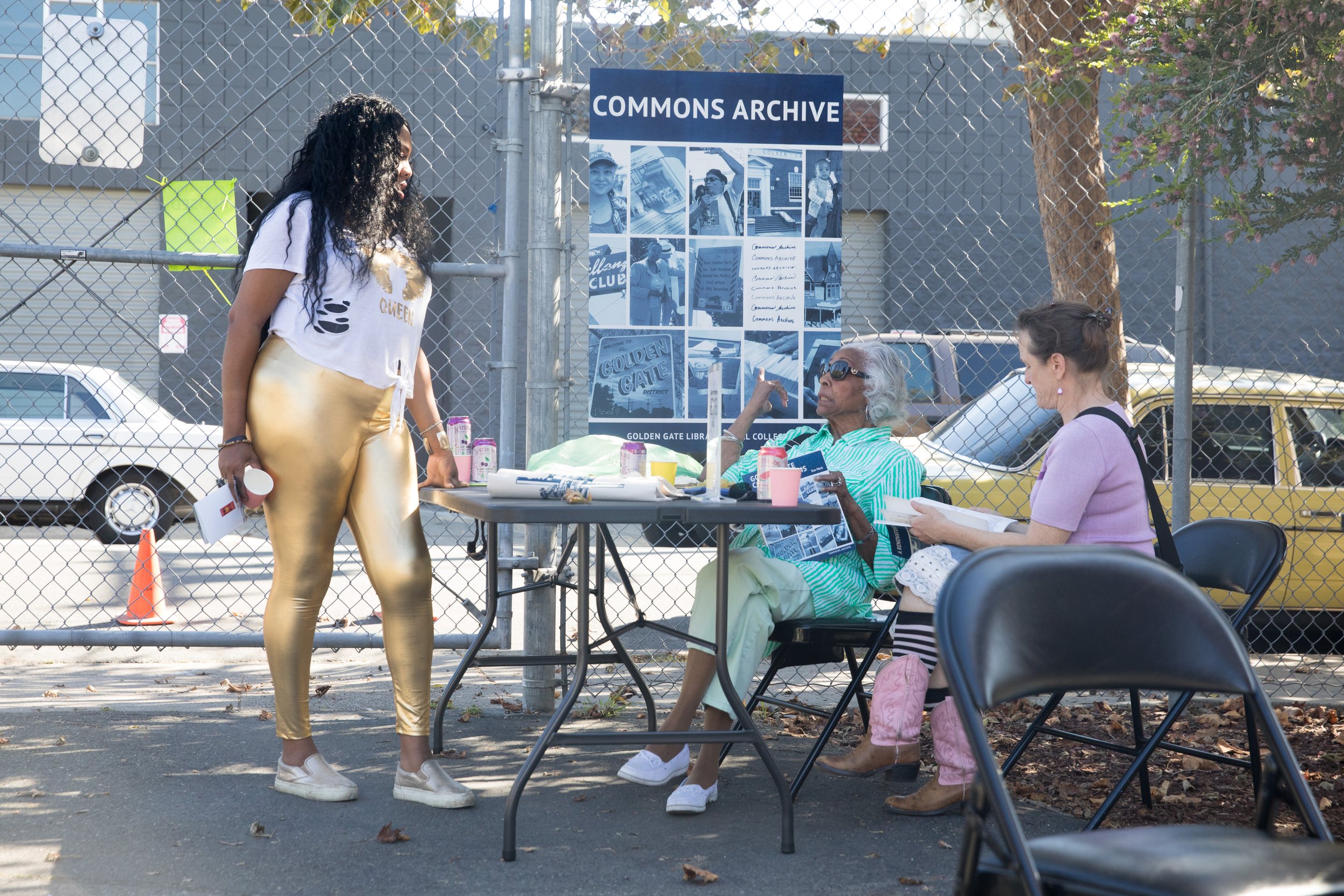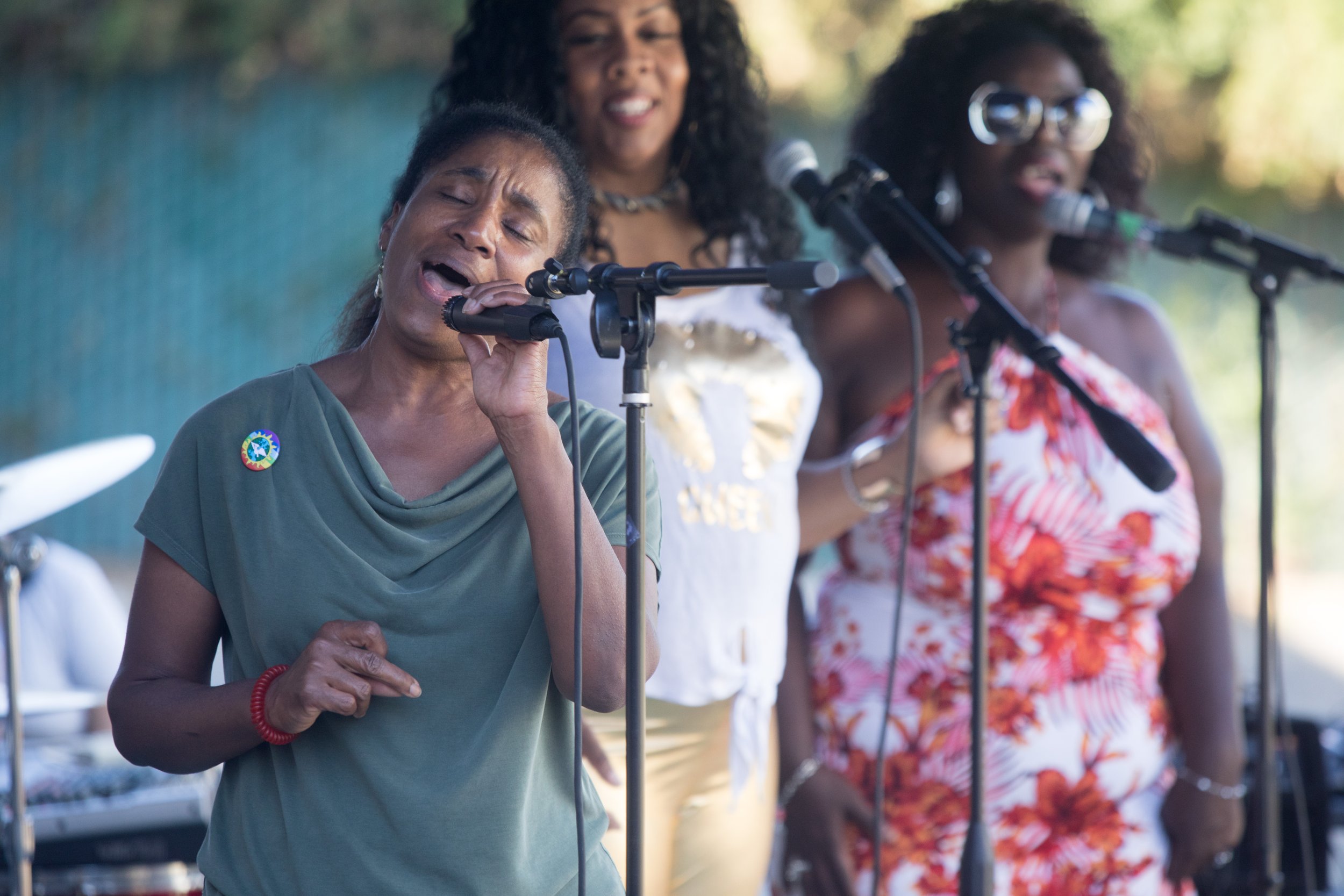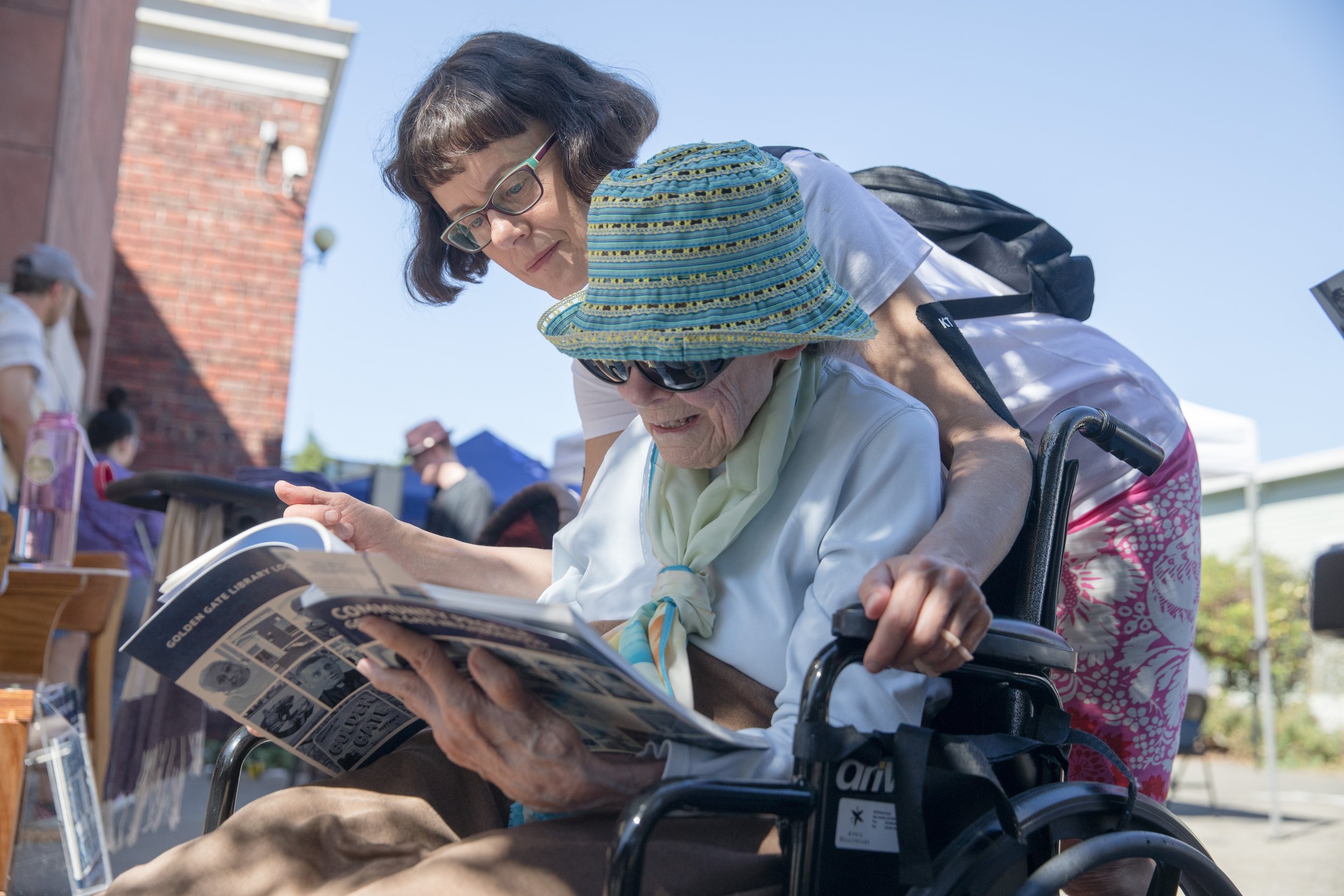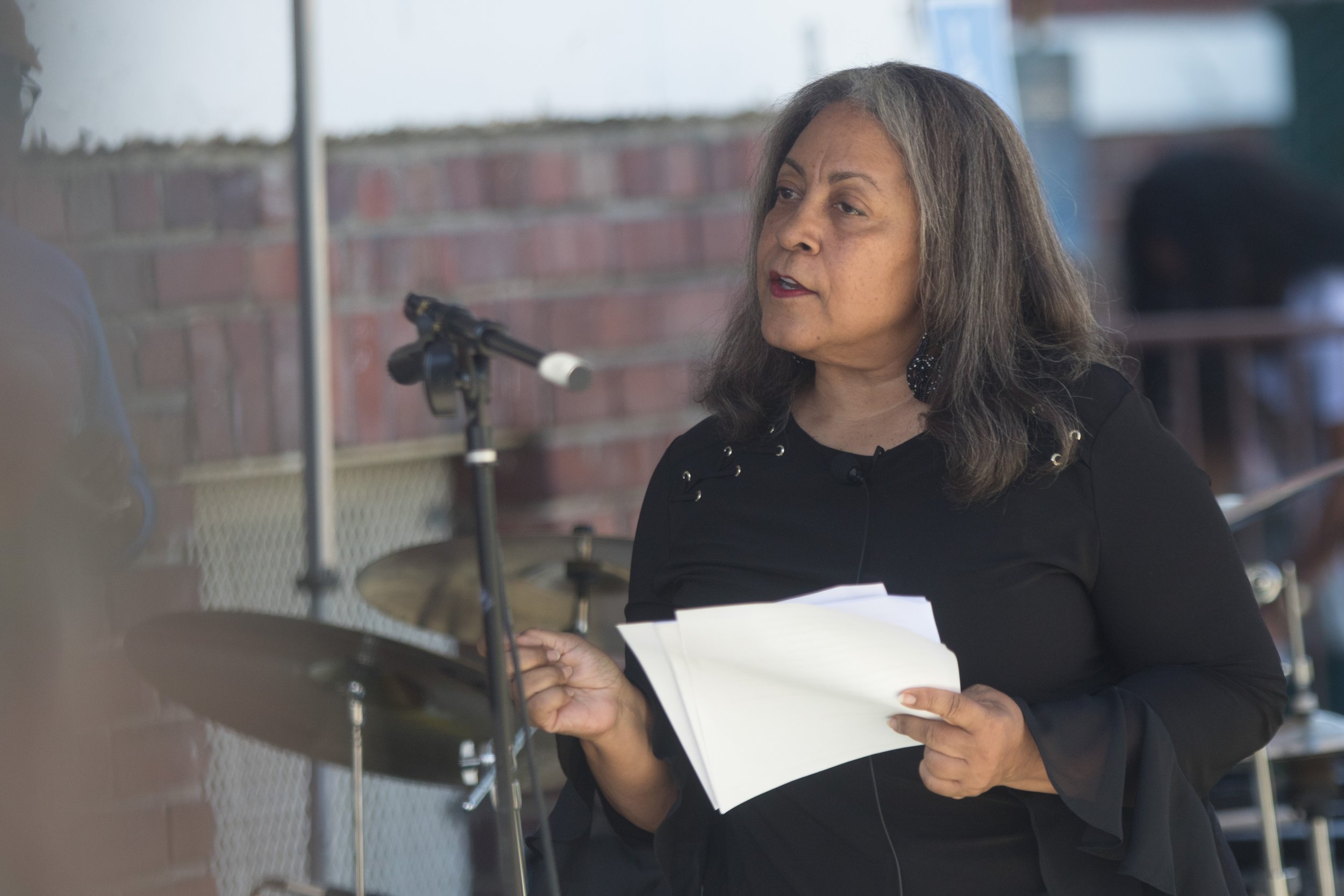Local Collection Book Launch Celebration
Saturday, September 21, 2019
Golden Gate Branch Library, Oakland, CA
Photo Credit: Minoosh Zomorodinia and Douglas Zimmerman
Neighbors, aged 3 months to 94 years, all came together to celebrate the new Golden Gate Library Local Collection. With food, music and stories, there was no better way to introduce the place-based series that is the heart of Commons Archive. We’re grateful to the community and library staff who have shared their knowledge, wisdom and time to shape the neighborhood’s new reference collection.
"The sense of the sacred is vital; we are on the brink of destruction, we’re dying for the lack of blessings to protect ourselves."
Named the City of Berkeley's first Poet Laureate in 2017, Rafael Jesús González's opening blessing called for justice, compassion, and peace in the face of environmental disaster and the ongoing denial of sanctuary. Brought together under the blazing sun, neighbors' chorus of affirmations spoke to a strong need to relate to one another.
Incredible musicians and vocalists from the neighborhood infused the celebration with joy. Golden Gate librarian Sharon Vaughn's acapella arrangements of the beloved songs 'Won’t You Be My Neighbor' and 'Stand By Me' conveyed what it means to be in community. Honoring the neighborhood's musical legacy, 'Back in Session', organized by longtime neighbor Don Mitchell, brought neighbors together as a toe-tapping and head-bobbing crowd.
How do we preserve neighborhood stories?
When do we have time to listen? Attendees joined Golden Gate residents Joanne Dickerson-Harper and Brock Winstead in free-flowing conversation about their relationship with the neighborhood and what it means to be a neighbor. Joanne has lived here nearly all of her life, since the 1940s. Brock is a relative newcomer, moving into the neighborhood in 2006. Joanne and Brock candidly shared stories about the changes they’ve experienced in this part of North Oakland. Joanne and Brock's oral histories are part of the Golden Gate Library Local Collection, in the 'Golden Gate Conversations' volume.
“For generations, white professional historians and other professions and institutions that present history, such as museums and national parks, have excluded the presence of African Americans, and particularly omitted the influence of African Americans in the development of the United States. In the 19th and 20th centuries arose a mostly grassroots movement to preserve African American history and culture by building museums, libraries, and archives, decolonizing systems of knowledge and information.”
It was no coincidence that the founders formally launched the East Bay Negro Historical Society on July 4, 1965. The group had been active since the 1940s through their shared church, Beth Eden Baptist. 1965 was a year of groundbreaking change, including:
California as the first state to teach African American history
Bloody Sunday in Selma, Alabama
Passage of the Federal voting rights act
Viet Nam War draft card burnings
UC Berkeley teach-ins
The EBNHS's trailblazing work laid the foundation for downtown's African American Museum & Library at Oakland (AAMLO). From 2017-18 Susan served as AAMLO's Interim Chief Curator. We're looking forward to the publication of her presentation in UC Berkeley’s BOOM: A California Journal. Take a look at AAMLO archival images from the presentation here. We're grateful to archivist Sean Dickerson for his research and James Butler for his beautiful event documentation.
